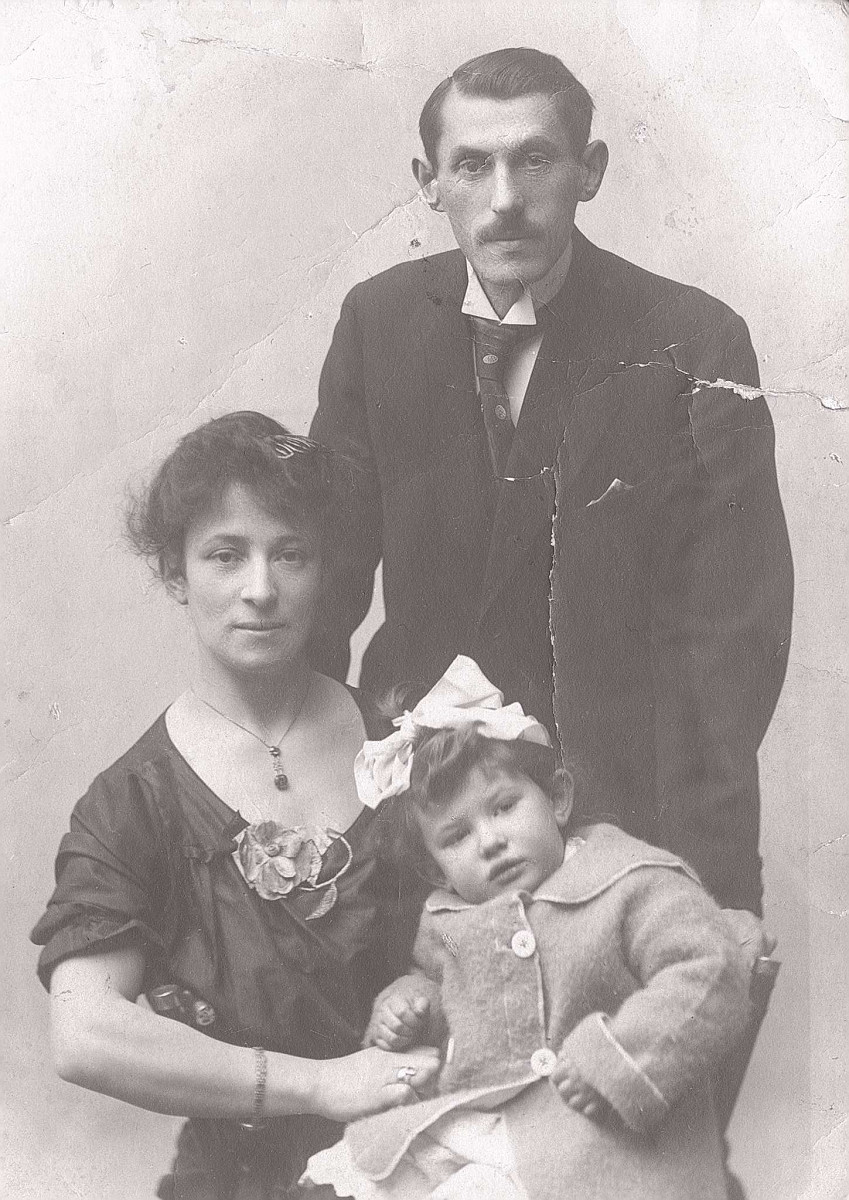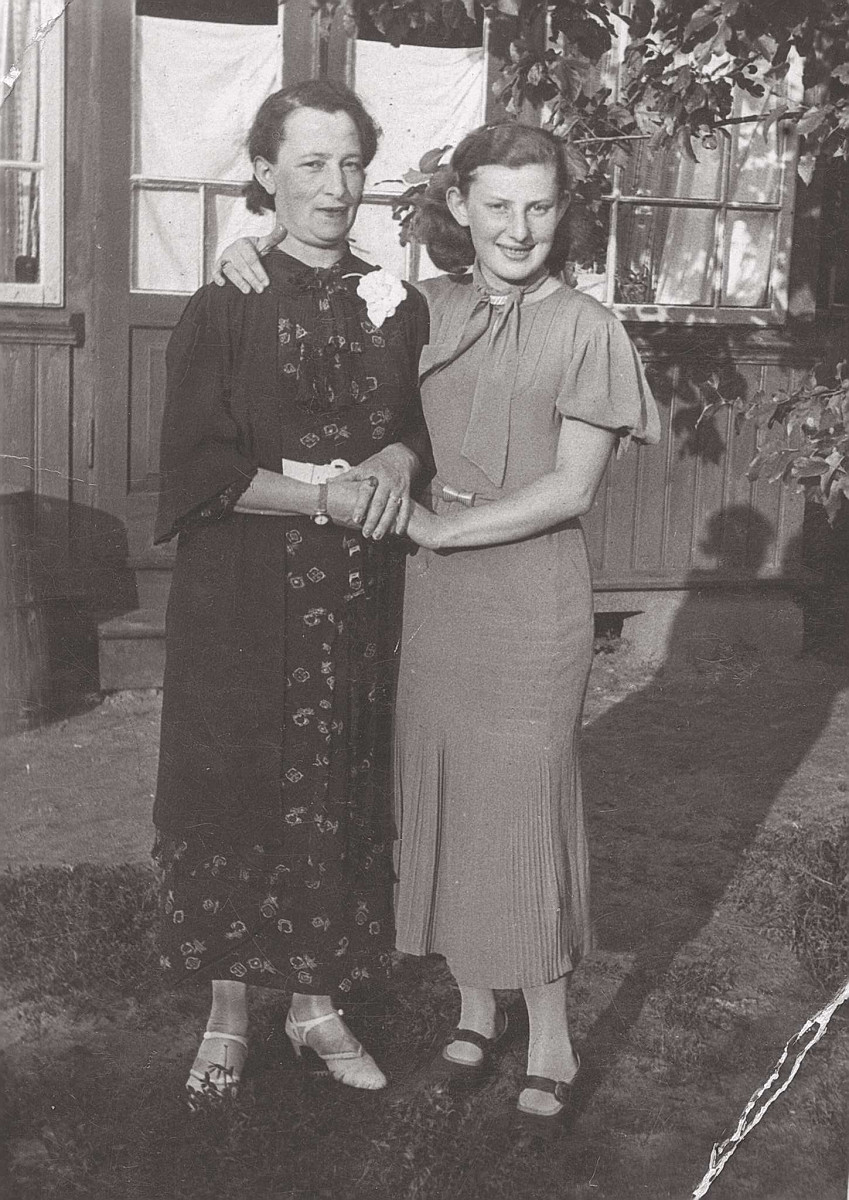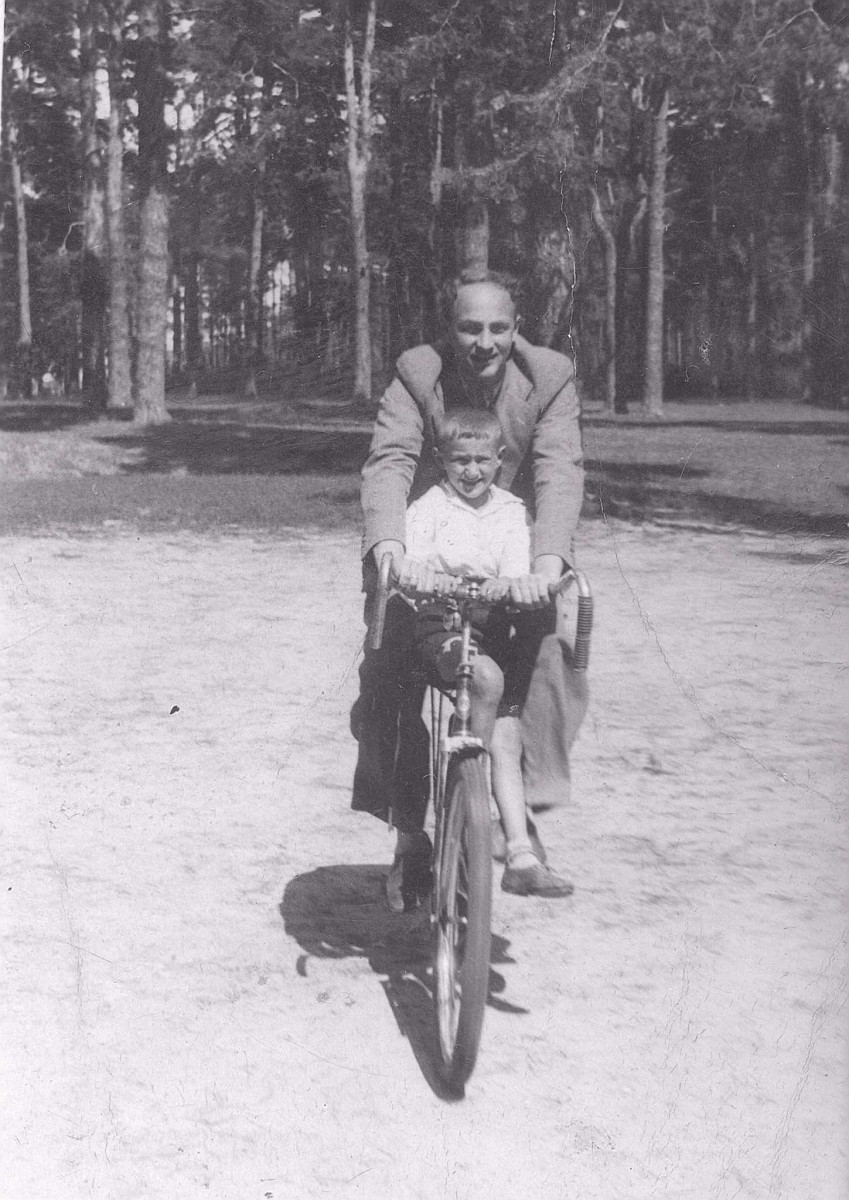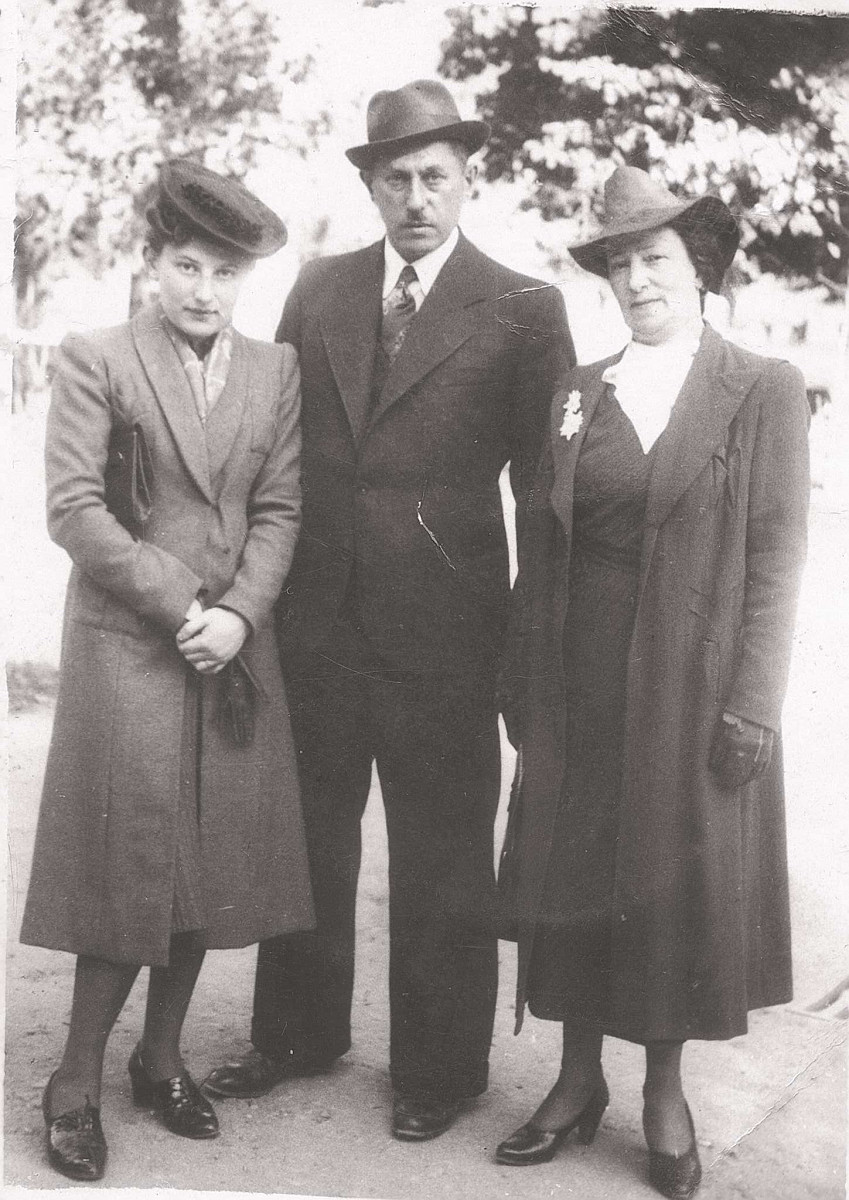- News
- Events
- Oneg Shabbat
- Collections
- Research
- Exhibitions
- Education
- Publishing Department
- Genealogy
- About the Institute
- Bookstore




This is a Jewish family that, before WW II, lived in Wilno at 19 Zarzecze Street. Today, it is Lithuania, the city of Vilnius, Uzupio Street. The owner of the house was the husband who appears in the photograph is with his wife and their little daughter on her knee
Wife of the homeowner with their grown daughter.
The owner of the mill is riding the bicycle with his son. I remember the son’s name — — Rufka. His father’s mill was in the Belmont neighborhood of Wilno. They lived on the same courtyard as me and my family. There was only one wall dividing us. I used to play with that boy. One day, the Germans came to our courtyard, they walked us all out and lined us up in two rows. My parents and I were stood opposite that boy’s family. A German man was walking in between the two rows. At one point, Rufka ran up to me and handed me a small cutlery set: a small knife, a teaspoon and a small fork. Since then, I haven’t heard anything about them. This is all I remember from the time of the German occupation when I was 5 years old. /…/

A family photo, the owner B. Bernsztein with his wife and adult daughter. The photographs have no dates or description on them, and I do not remember the names of members of that family. My father and his wife Maria received the photos as a souvenir from the owner of the house. My father and his wife lived and worked in the home of the owner. My father was a building superintendant. Now I have the photographs. The owner of the house had a factory on the ground floor in the courtyard – he was bottling carbonated water and orangeade, and at the end of the yard there was a large ice house, where large blocks of ice were kept in the sawdust. He had wagons with horses, with which workers were transporting the water and orangeade into the city. When the war broke out, the owner with his wife stayed in their house where the bottling company was. And their adult daughter with her fiance or a husband — — I don’t remember exactly — — most likely escaped to Russia. After some time, the Germans took the owner and his wife to the ghetto. One day, when the Germans marched a column of Jews down Zarzeczna Street, two men ran into the yard where my father was — — he was a super for the building owner — — maybe one of them was the owner. I can’t remember. I remember how two men stayed for the night in our room, one of them hid under my bed, and the second one under my parents’ bed. I remember my father saying that night came and he took them to the attic for some reason. And, in the morning, as the Germans were leading a column of Jews, my father opened the gate for them and they joined the column. After a while, in Vilnius, my father saw the owner walking to work in the column. The owner walked up to my father and told him: “Józef, one of these days, they will take us to Ponary for sure.” Since that encounter, my father hasn’t seen him again. /…/